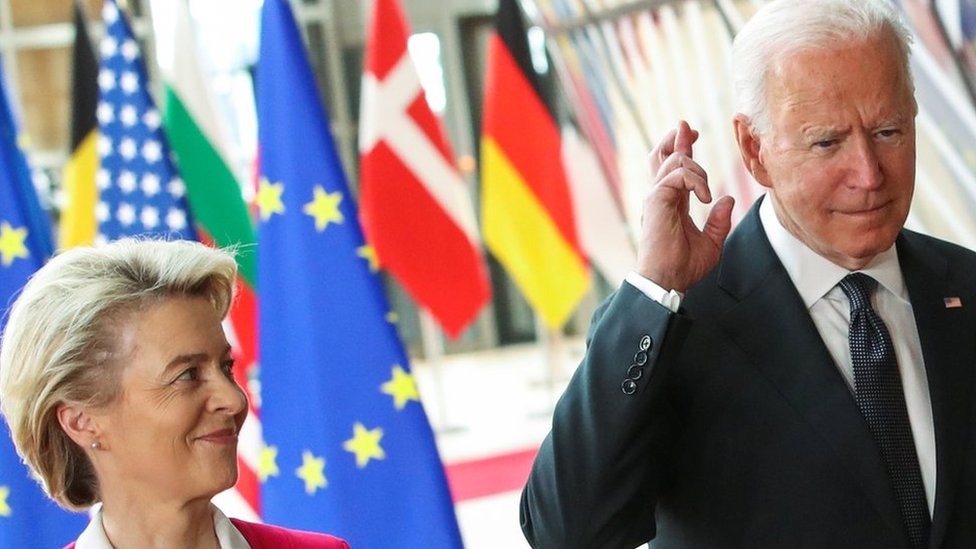
60 Years on, What Can We Learn from the Cuban Missile Crisis?
(Japan) on 28 October 2022
by (link to original)
Many are now terrified that that nightmare has returned, though, with Russian President Vladimir Putin threatening the use of nuclear weapons in his country's invasion of Ukraine, and U.S. President Joe Biden referring to this dangerous situation as "the first time since the Cuban Missile Crisis." Now more than ever, we must study how it was that this emergency was avoided through diplomacy.
Here are the facts: After the revolution of 1959, Cuba joined the Eastern Bloc headed by the Soviet Union, who, looking to protect its foothold at America's underbelly, set up bases and installed intermediate-range missiles on the island. On Oct. 10, 1962, President John F. Kennedy would announce both this development and the Navy's blockade of Cuba to the world, which waited with bated breath until Oct. 28, when Moscow agreed to remove its bases, bringing the crisis to a close.
The leaders with their fingers on the big red button were Kennedy and First Secretary Nikita Khrushchev. Factors such as the aggressively expanding nuclear arms race, maintaining face in the West vs. East struggle and the political situations in both the U.S. and USSR created a perfect storm of distrust where neither side could read the other's moves. This pushed both countries, as well as the world, to the brink of mutually assured destruction.
How exactly was that situation resolved peacefully? While the Soviet Union may have compromised on the conditions that Cuba be left in peace and that American nuclear weapons be withdrawn from Turkey, this settlement was not left solely up to the leaders of both countries. For example, the role that the U.N. played in brokering this shaky compromise, with many third-party countries pushing for a dialogue, cannot be overstated. Many of them understood the tragedy laid before them at Hiroshima and Nagasaki 17 years prior, and their shared fear of nuclear annihilation helped bring this affair to a diplomatic conclusion.
Let's tie in this turn of events with Russia's situation now. It goes without saying that Putin's invasion of Ukraine is a violent transgression of international law and cannot be compared to the Cuban crisis so easily. It would make the most sense to order a ceasefire and retreat before nuclear weapons and the like are used. In turn, we shouldn't slack in trying to reach a peaceful end to this conflict.
There are many reasons to worry, though. The following year, Cuba, the U.S. and the Soviet Union signed the Limited Test Ban Treaty and set up measures like hotlines between both governments to encourage dialogue on disarmament, resolve misunderstandings and facilitate crisis management. Efforts such as these have grown fewer since the collapse of the USSR and today seem nonexistent.
Under orders from Putin, Russia's strategic nuclear forces have conducted large-scale drills. While these have been reported to be standard training, with American authorities being notified, there's no doubt that, in the shadow of heavy fighting in Ukraine, this too is an ostentatious display of Russian nuclear might.
Even if Moscow were to launch nuclear weapons, they would be tactical missiles made with the intent of being used in a regional conflict. As such, there is no indication at this time that Washington would do the same. However, it must not be overlooked that the Russian military is steadily preparing its nuclear arms, such as hypersonic missiles equipped with nuclear warheads and unmanned nuclear submarines, to use them in a conflict and not for deterrence.
The invasion of Ukraine has made apparent this fact about Russia. The collective will of the international community must make it clear that nuclear warfare will not be tolerated. We must not forget the lessons of Cuba, the lessons of when the world was on the edge of the abyss.

:quality(70)/cloudfront-eu-central-1.images.arcpublishing.com/irishtimes/N2OIN6X4GJACS6JMMGJ4WGKJYU.jpg)
